CuriosiD: Why Does a Private Company Own a Major U.S. Border Crossing?
Finding why Bridge spanning U.S.-Canada border is in private hands: A tale of piles of cash and fears of terrorism.
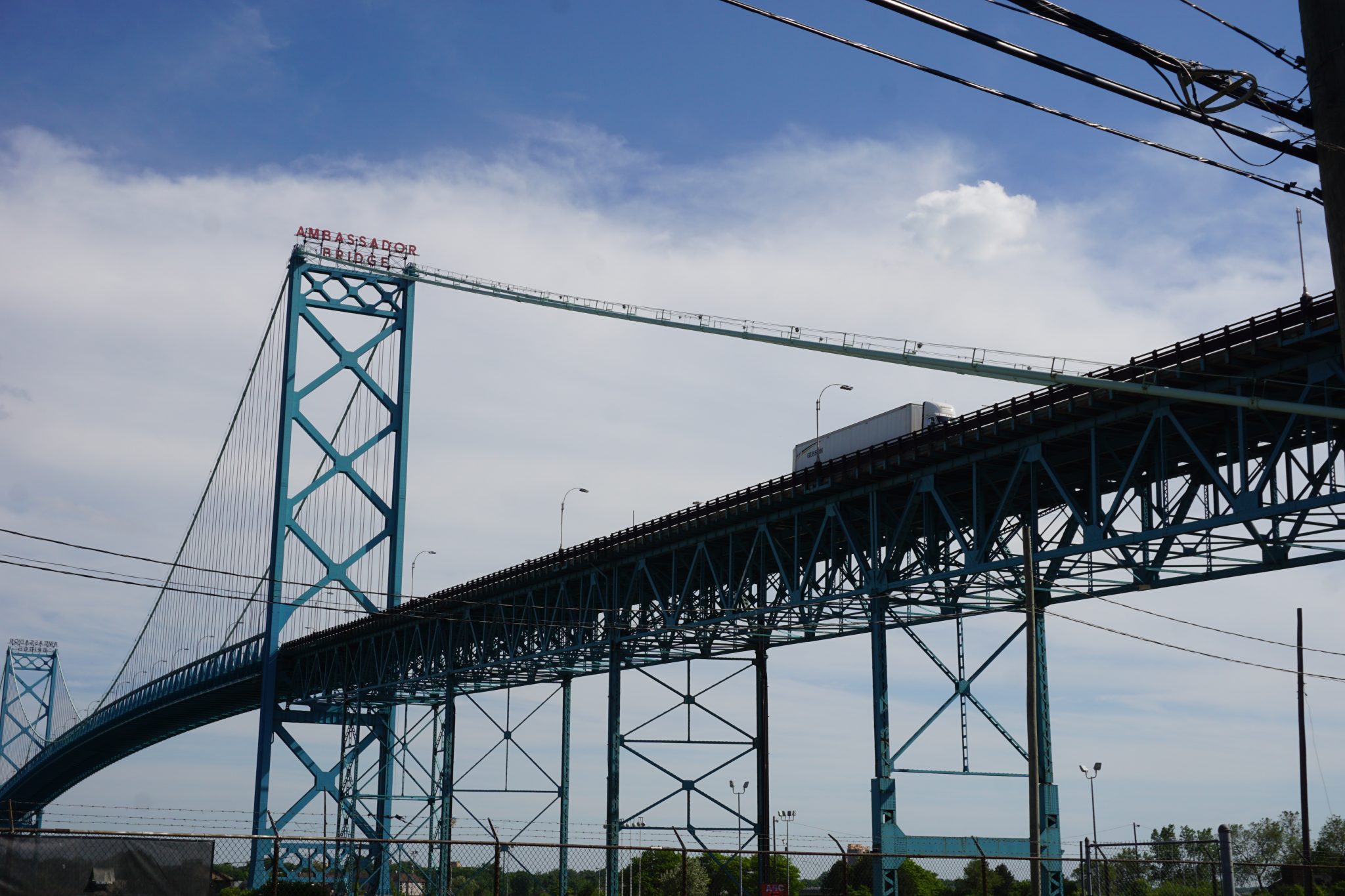
In this episode of CuriosID, listener Evan Fekete asks…
How did the International Ambassador Bridge become privately held? It just seems that, like, two sovereign countries should be in charge of an international crossing, a really large international crossing?
The Short Answer
The bridge is owned by a private company because after the Civil War, when railroads wanted to find something other than ferry boats to move trade goods, private entrepreneurs were the ones who paid to build the massive structure spanning Detroit and Windsor. And Detroit officials approved the construction, though some on the Canadian side were a bit more leery.
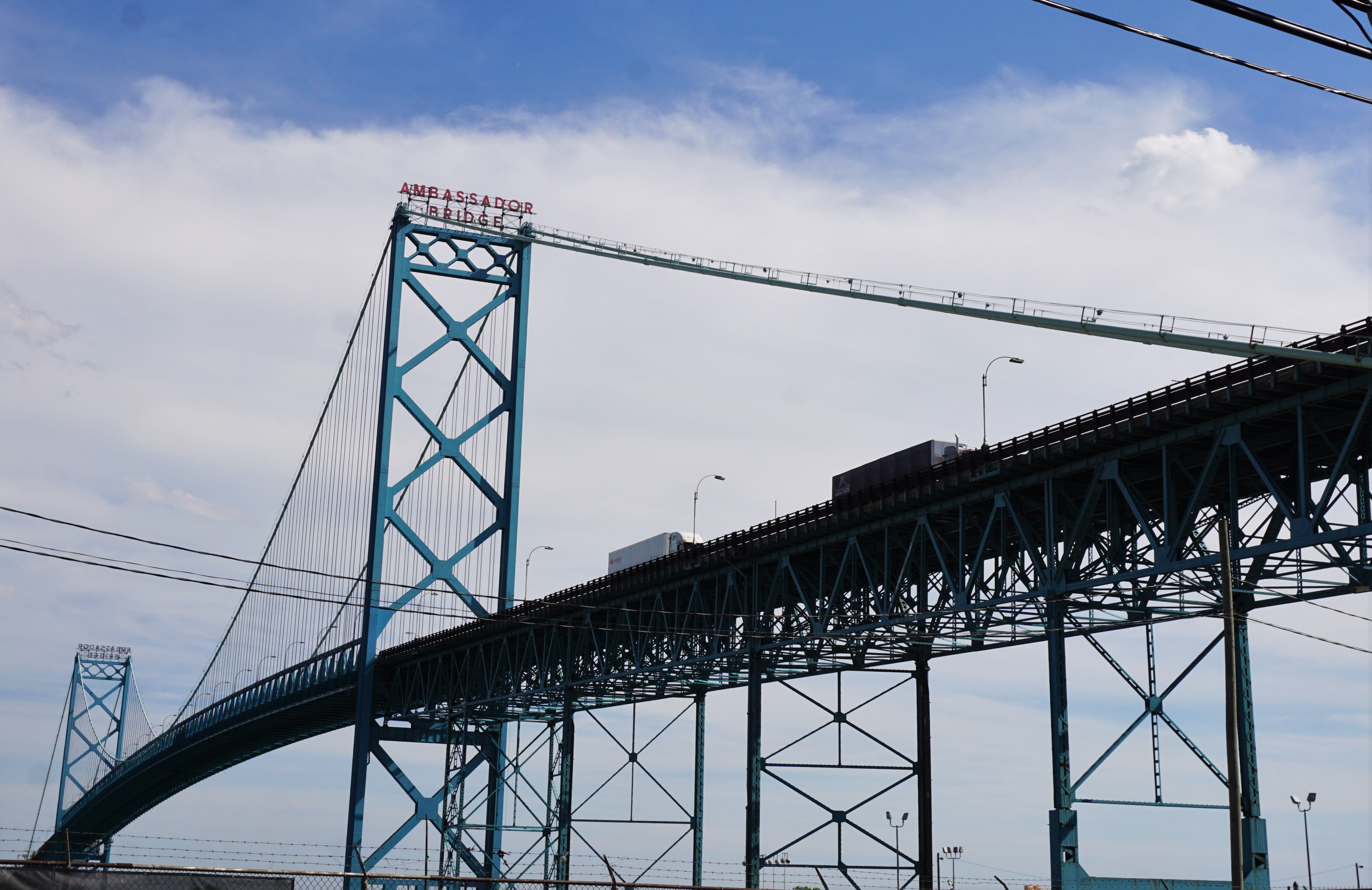
A Bridge to Better Trade
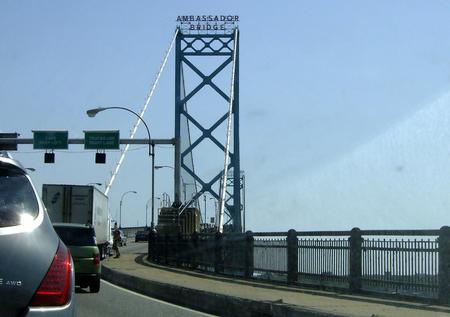
About one-quarter of all the trade between the U.S. and Canada passes over this privately-owned, hulking Ambassador Bridge.
Should a private company control that flow of goods? That’s a concern heard since just after the end of the U.S. Civil War, when railroads wanted to find something other than ferry boats to move trade goods across the Detroit River.
It took until the Roaring 1920’s for entrepreneurs John Austin and Joseph Bower to begin building the bridge, at a cost of $23.5 million.
And the Detroit Historical Society’s Joel Stone says just who should own the bridge was already an issue, especially for the city’s mayor, Johnny Smith.
Stone said, “There was a political pull between John Lodge, the head of the Common Council, and Smith. The mayor was kind of an adherent to public ownership of these things and really thought that it ought to be a public bridge. Lodge thought the other way. And they were able to kind of fight it through and clear the way for the bridge builders to actually get in there, the Bower family.”
Lodge defeated Smith in the 1927 mayoral primary.
Canadian Concerns
“The Canadians have always had concerns that this was in private hands.” Joel Stone, Detroit Historical Society
Stone says allowing a private company to build the bridge was not met with universal applause.
“There has always been opposition on both sides of the border to this. The Canadians have always had concerns that this was in private hands. And they wanted to guarantee that the rights of their citizens were covered in any going forward agreements,” Smith said.
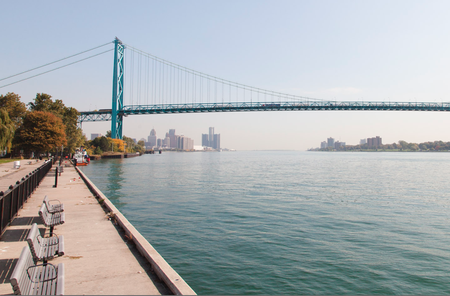
When the Ambassador opened in November, 1929 it was the largest suspension bridge in the world.
The Bower family controlled the bridge until 1979, when businessman Matty Maroun bought it. He now earns an estimated $60 million a year from it.
So it’s not surprising Maroun fought to stop Michigan and Canada from developing a second, nearby bridge crossing the Detroit River, now known as the Gordie Howe International Bridge.
Maroun and another Ambassador Bridge Company official even went to jail briefly on contempt of court charges for failing to make good on pledges to finish access roads to the bridge.
At that time Windsor West Canadian Parliament Member Brian Masse called it a bad omen for one of his nation’s busiest trade routes.
Masse said, “It’s not often where the CEO and the manager end up in prison because they have violated basic laws and tenants of a nation. That’s an extreme situation on something so important to our economies.”
The Next 9/11?
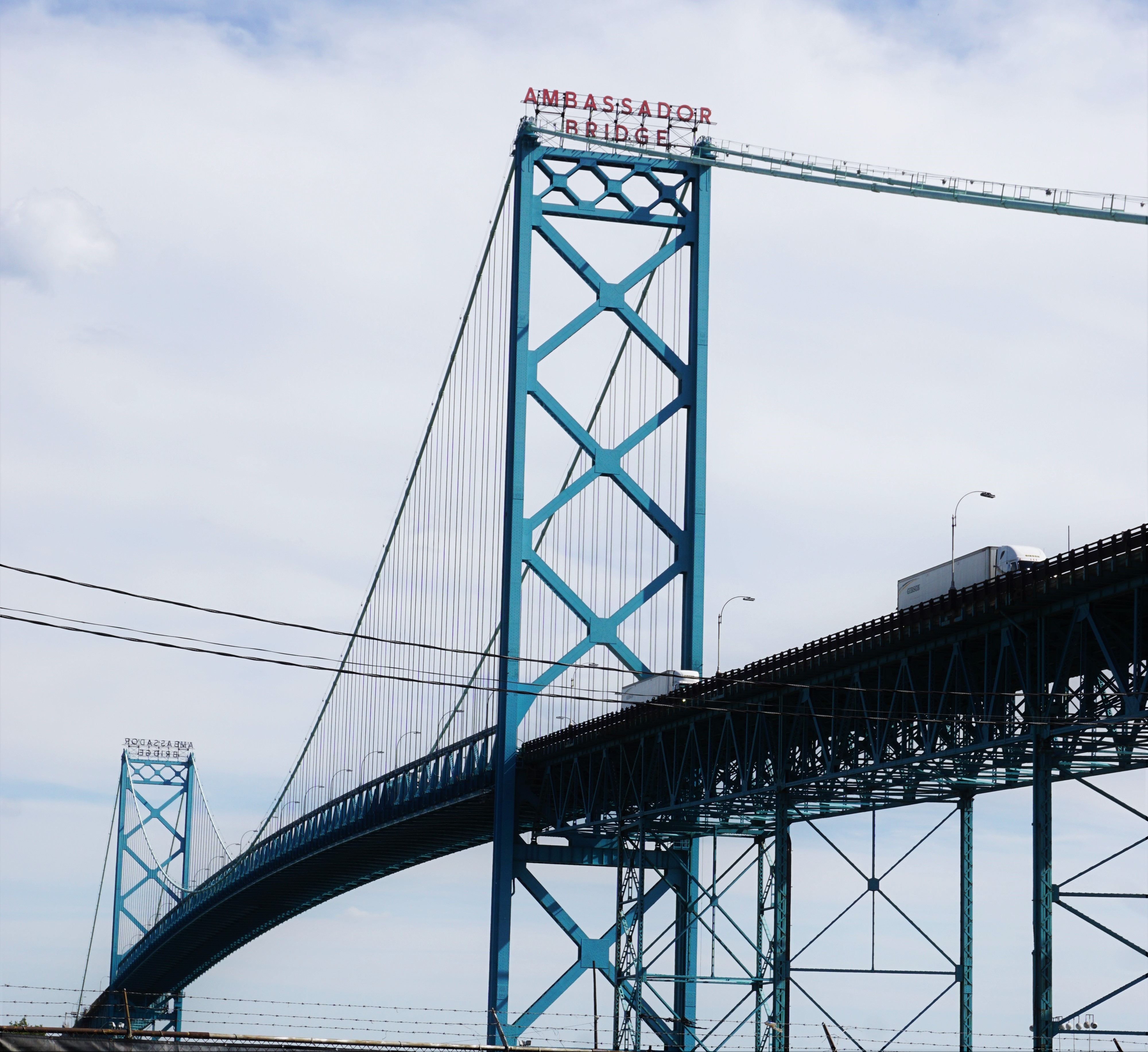
Security concerns came to a head after the 9/11 terrorist attacks.
U.S. officials feared the Ambassador Bridge could present a tempting target, especially the duty-free refueling station housed underneath it on the U.S. side.
Yet the U.S. Customs and Border Protection’s Ken Hammond said combining public and private security forces has been pleasantly effective.
“I have not been met with any surprises over the years,” Hammond said. “We had a few incidents on the bridge, CPB officer-involved shootings. We have had those. But we coordinated responses with Detroit police, fire and EMS in conjunction with the Bridge Company. So it’s a good working, cooperative relationship.”
So there’s the answer Evan Fekete was looking for.
The Ambassador Bridge is in private hands because private entrepreneurs were the ones willing to pay to build it.
Fekete said, “Interesting. Yeah, I guess if you beat ‘em to the punch, like, they can just kind of call the shots…ha!”
If you are interested in finding out who calls the shots on some topic, or why, let us know at WDET.org/Curious.
About the Asker

Evan Fekete describes himself like this:
“A suburban renegade who enjoys the many offerings the city of Detroit has, from food popups and beer venues to the best bike riding in the state.
For me it’s hard to imagine the city without the Ambassador Bridge, when you stare out at the Detroit River and see the city of Windsor only several football fields away, you’re reminded of the bridge’s ability to defy nature. I just wondered how this crown jewel isn’t owned by the city of Detroit.”
